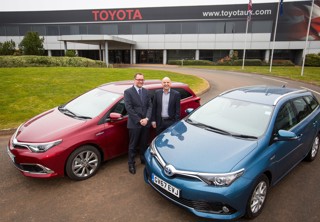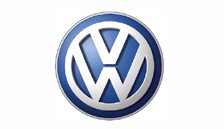Diesel is no longer the dominant fuel for fleets, with petrol now the powertrain of choice for company car drivers, newly released sales data reveals.
Air quality concerns, tax increases and uncertainty around clean air zones (CAZs) have taken their toll on fleet and business diesel registrations over the past 12 months.
Figures from the Society of Motor Manufacturers and Traders (SMMT), show petrol holding a 53.2% market share in fleet for the first quarter of 2018, up almost 13 percentage points from the 41.5% it held in the first three months of 2017.
Diesel however, held just 41.5% market share in Q1 2018, significantly down on the 54.4% of the fleet and business market it accounted for in Q1 2017. The share of alternative fuel vehicles (AFVs) grew slightly over the same period, up from 4.1% to 5.3% this year.
Volumes overall were down by some 11% compared to Q1 2017, but the number of diesel registrations to fleet and business have seen an even greater decline, down by almost a third, year-on-year.
In Q1 2017, 236,081 diesel cars were registered to fleet and business, compared to just 159,704 units this year – 76,377 fewer cars.
Mike Hawes, SMMT chief executive, said that the year-on-year fall in overall volume for the new car market was not unexpected given the huge surge in registrations in March last year to beat increases in vehicle excise duty (VED).
However, he said: “All technologies, regardless of fuel type, have a role to play in helping improve air quality while meeting our climate change targets.”
NEXT COMPANY CAR
A Fleet News poll offers diesel some respite however, with 40% of respondents saying they will choose a diesel as their next company car.
Petrol’s rise also appears short-lived as it was only chosen by 14.9% of respondents. The majority of drivers, some 44.5%, said their next car will be an alternative fuel, with one in four (27%) wanting a petrol hybrid and one in eight (13.7%) looking to adopt a fully electric car.
Help could also be on the horizon for diesel however, as scientists say they have developed technologies which could significantly cut harmful NOx emissions.
Academics from Loughborough University’s School of Mechanical, Electrical and Manufacturing Engineering have developed a technology that effectively increases the capacity of existing after treatment systems to cut NOx (see page 7).
Meanwhile, in the past week, engine parts manufacturer Bosch claimed it had achieved a “breakthrough” in diesel technology.
It says that in RDE (real driving emissions) testing, emissions from vehicles equipped with its new diesel technology are not only significantly below current limits, but also those limits scheduled to come into force from 2020.
EU TARGETS
Since 2017, European legislation has required that new passenger car models, tested according to an RDE-compliant mix of urban, extra-urban, and motorway cycles, emit no more than 168 milligrams of NOx per kilometre. As of 2020, this limit will be cut to 120mg.
That is approximately a tenth of the EU limit that will apply after 2020. And, even when driving in particularly challenging urban conditions, where test parameters are well in excess of legal requirements, the average emissions of the Bosch test vehicles, it says, are as low as 40mg/km.
Talking at the company’s annual press conference in Germany last week, Bosch CEO Volkmar Denner said: “There’s a future for diesel. We want to put a stop, once and for all, to the debate about the demise of diesel technology.”
Bosch claims a combination of advanced fuel-injection technology, a newly developed air management system and intelligent temperature management has made such low readings possible.
“Bosch is pushing the boundaries of what is technically feasible,” said Denner.
The reduction in NOx has also been achieved by refining existing technologies, removing the need for new components, which won’t add to costs.
Denner continued: “We firmly believe that the diesel engine will continue to play an important role in the options for future mobility.
“Until electromobility breaks through to the mass market, we will still need these highly efficient combustion engines.”
However, environmental campaign group Client Earth reacted to Bosch’s NOx-cutting claims with typical scepticism. Client Earth clean air lawyer Ugo Taddei said: “We’ve not yet seen a combustion engine that’s clean for people’s health and the environment and the car industry has shot itself in the foot when it comes to consumer trust. For diesel, it might just be too late.”
JOB LOSSES
A sceptical market has already contributed to some job losses at UK factories. Nissan’s plant in Sunderland is planning to reduce its output this year as it moves to a new range of powertrains and reacts to lower diesel sales both here and abroad.
It is understood the carmaker is talking to employees about the changes, with some being offered a financial package and the chance to be retrained if they choose to leave.
Nissan has said it expected production volumes to recover as it begins to make the new models.
Steve Bush, acting national officer at Unite, said the union was working with the manufacturer “to minimise job losses associated with a short-term reduction in volumes”.
He added: “Going forward we expect to see temporary workers at the plant move into permanent positions as volumes pick up again in future.”
The threat of job cuts follows those at Jaguar Land Rover, where up to 1,000 contract staff could be laid off.
Diesel sales account for around 90% of the brand’s overall sales in the UK.
It confirmed output at the company’s Solihull and Castle Bromwich plants will be cut. In a statement, JLR said it “regularly reviews its production schedules” to ensure market demand is “balanced globally”.
“In light of the continuing headwinds impacting the car industry, we are making some adjustments to our production schedules and the level of agency staff,” it said.
JLR added that it is continuing to recruit large numbers of highly skilled engineers, graduates and apprentices as it continues to invest in new products and technologies.
The news comes three months after the brand said it would temporarily reduce production at its Halewood plant later this year, in response to weakening demand due to Brexit and tax increases on diesel cars.
It is scaling back production of Discovery Sport and Range Rover Evoque models this year, but told fleet decision-makers lead times will not be affected.
Meanwhile, Honda told Fleet News it remains committed to diesel engines, despite dropping it from its latest CR-V in favour of petrol-electric hybrid.
Phil Webb, Honda head of car, said: “Diesel remains an integral part of the UK market and, particularly, the corporate market, so we are committed to diesel in the current Civic.”
Marc Samuel, fleet sales operations manager at Honda, added: “We think there will be a place for diesel in our car line-up until 2025, and for now, diesel is still the best engine option for many roles.”
The move contrasts with Toyota’s decision to phase out diesel in its passenger car range, retaining it only in larger 4x4 vehicles, and launching the new Auris in 2019, a rival for the Honda Civic, with petrol or hybrid options.






















Login to comment
Comments
No comments have been made yet.